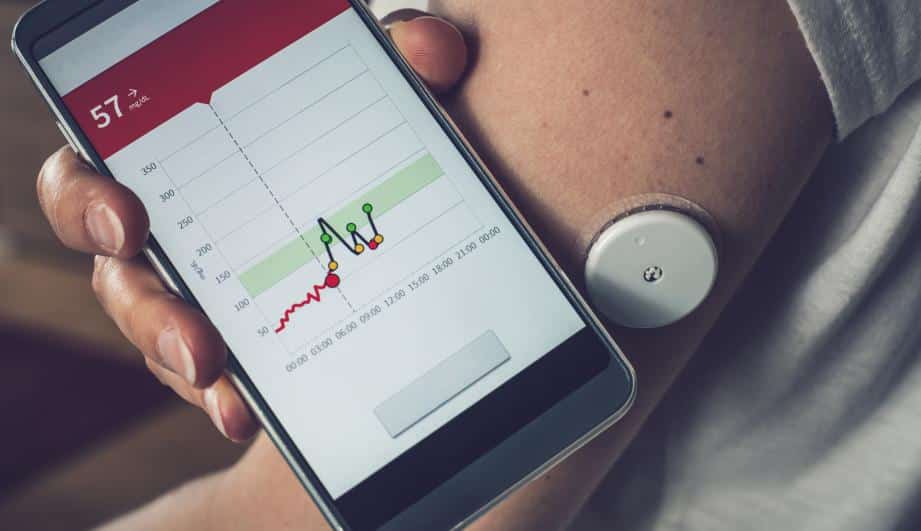Living with Type 1 Diabetes (T1D) poses numerous challenges, one of which is managing blood glucose levels effectively. Glucose fluctuations, the highs and lows experienced by individuals with T1D, not only affect physical health but also have a significant impact on cognitive function. In this blog, we’ll delve into the intricate relationship between glucose fluctuations and cognitive function, shedding light on why managing blood sugar levels is crucial for maintaining mental acuity in individuals with Type 1 Diabetes.
Glucose Fluctuations: The Rollercoaster Ride
Glucose fluctuations refer to the erratic changes in blood sugar levels that individuals with T1D often experience. These fluctuations can occur due to various factors such as insulin dosage, dietary choices, physical activity, stress, and hormonal changes. While some fluctuations are inevitable, frequent and severe swings in glucose levels can have detrimental effects on overall health, including cognitive function.
The Brain’s Fuel: Glucose and Cognitive Function
A major energy source for the brain is glucose. Unlike other organs, the brain has limited energy reserves and depends on a steady supply of glucose from the bloodstream to function optimally. When blood sugar levels fluctuate, the brain’s ability to regulate cognitive processes such as memory, attention, and decision-making is compromised.
Impact on Cognitive Function
Memory Impairment
Studies have shown that both high and low blood sugar levels can impair memory function in individuals with T1D. High glucose levels can lead to cognitive deficits by disrupting synaptic plasticity, the brain’s ability to form and strengthen connections between neurons. Conversely, hypoglycemia (low blood sugar) can cause temporary memory loss and cognitive dysfunction due to reduced glucose availability to the brain.
Must Read Unveiling Disparities: Addressing Inequities in CGM Access
Attention and Concentration
Glucose fluctuations can also affect attention and concentration levels. When blood sugar levels are too high or too low, individuals may experience difficulty focusing on tasks, maintaining attention, and processing information efficiently. This can impact academic and professional performance as well as daily activities.
Executive Function
Executive function refers to a set of cognitive processes responsible for planning, decision-making, and impulse control. Glucose fluctuations have been linked to impairments in executive function, making it challenging for individuals with T1D to regulate their behavior and make sound judgments.
Mood and Emotional Regulation
Blood sugar fluctuations can influence mood and emotional well-being. Hypoglycemia, in particular, is associated with irritability, anxiety, and feelings of confusion or disorientation. Conversely, hyperglycemia (high blood sugar) can lead to fatigue, lethargy, and mood swings, affecting overall quality of life.
Read Guide about Wegovy Dosage Guide: The Best Way For Weight Loss
Managing Glucose Fluctuations for Cognitive Health
Effective management of blood glucose levels is essential for preserving cognitive function and overall well-being in individuals with T1D. Here are some strategies to help minimize glucose fluctuations and support optimal cognitive health:
Continuous Glucose Monitoring (CGM): CGM devices provide real-time feedback on blood sugar levels, allowing individuals to make timely adjustments to their insulin dosage, diet, and physical activity.
Insulin Therapy: Fine-tuning insulin therapy with the help of healthcare professionals can help maintain stable blood sugar levels throughout the day, reducing the risk of extreme fluctuations.
Balanced Diet: Consuming a balanced diet rich in complex carbohydrates, fiber, protein, and healthy fats can help stabilize blood sugar levels and provide sustained energy for the brain.
Regular Exercise: Physical activity plays a crucial role in glucose metabolism and insulin sensitivity. Engaging in regular exercise can help regulate blood sugar levels and improve overall cognitive function.
Stress Management: Stress can impact blood sugar levels and exacerbate glucose fluctuations. Practicing stress-reduction techniques such as mindfulness, meditation, and deep breathing exercises can help mitigate its effects.
Also, read about Sugar Alert! Warning Signs of Diabetes
Conclusion
Glucose fluctuations pose a significant challenge for individuals with Type 1 Diabetes, impacting not only physical health but also cognitive function. By understanding the relationship between blood sugar levels and cognitive performance, individuals with T1D can take proactive steps to manage their condition effectively and preserve their mental acuity. Through a combination of lifestyle modifications, medication management, and regular monitoring, individuals with T1D can minimize the impact of glucose fluctuations and lead fulfilling lives despite the challenges posed by their condition.


